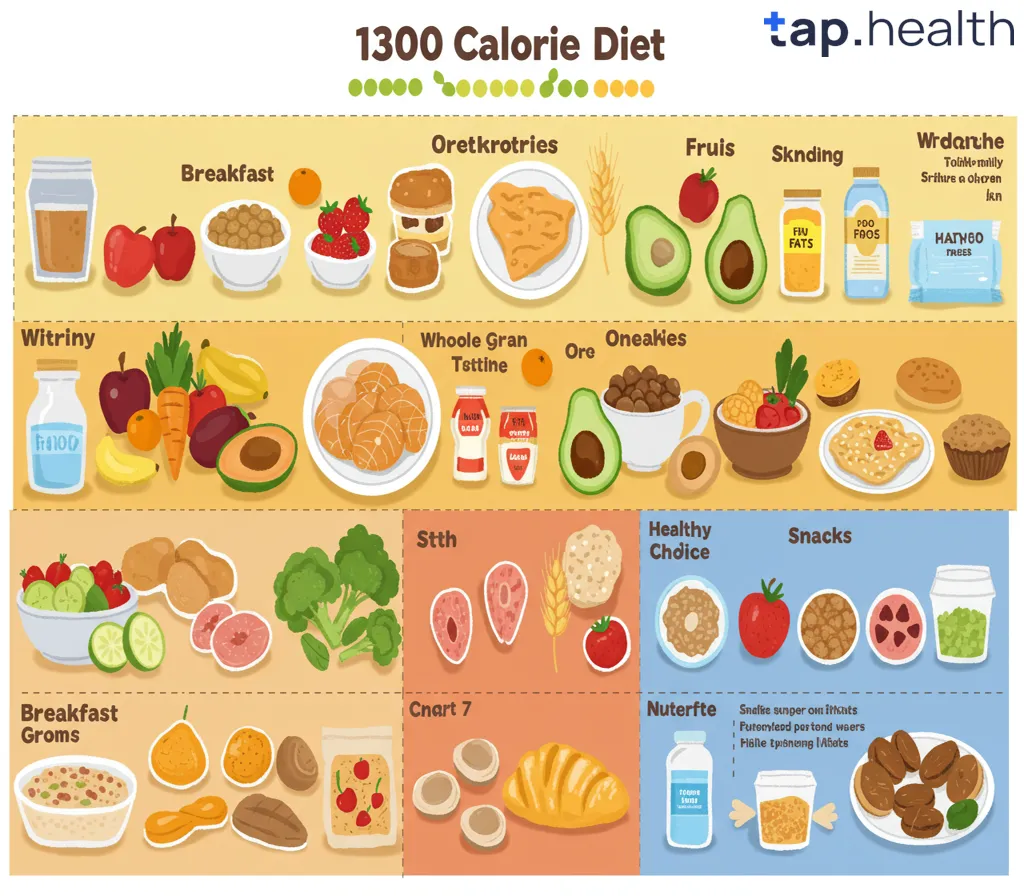Pregnancy is a transformative experience, bringing joy and anticipation, but it also comes with a multitude of concerns, especially when it comes to what foods and beverages are safe to consume. One question that has been increasingly asked is whether mushroom coffee, which has gained popularity for its potential health benefits, is safe to drink during pregnancy.
Mushroom coffee, a blend of regular coffee and medicinal mushrooms like Lion’s Mane, Chaga, Cordyceps, and Reishi, promises a range of health benefits—from improved cognitive function to enhanced immune support. But as with any dietary change during pregnancy, it’s important to consider the safety of these ingredients for both mother and baby.
This blog will address whether mushroom coffee is safe to consume during pregnancy by exploring its ingredients, caffeine content, potential risks, and expert advice. We will also provide insights on how to make an informed decision about incorporating mushroom coffee into your pregnancy routine.
What is Mushroom Coffee?
Mushroom coffee is a unique blend that combines coffee grounds with medicinal mushrooms, designed to provide the energizing effects of coffee alongside the potential health benefits of mushrooms. The mushrooms used in these blends are often chosen for their functional properties, such as boosting cognitive function, supporting the immune system, and helping to reduce stress.
The key medicinal mushrooms found in mushroom coffee include:
- Lion’s Mane: Known for its ability to enhance brain function, improve memory, and promote nerve regeneration.
- Chaga: Rich in antioxidants and used for its potential to support immune health and fight inflammation.
- Cordyceps: Used to improve energy, stamina, and athletic performance.
- Reishi: Famous for its calming properties, it is used to support relaxation, reduce stress, and enhance sleep quality.
These mushrooms are typically ground into a fine powder and mixed with coffee grounds, providing a smooth, rich flavor that’s less bitter than regular coffee. Many mushroom coffee brands claim that their products offer a smoother, more sustained energy boost without the typical jitters and crashes associated with regular coffee. Additionally, they market these beverages as functional drinks that provide cognitive and immune support.
Is Mushroom Coffee Safe During Pregnancy?
While mushroom coffee has its benefits, it’s important to evaluate its safety during pregnancy. There are several factors to consider, including caffeine content, the types of mushrooms used, and the potential effects of those mushrooms during pregnancy.
1. Caffeine Content in Mushroom Coffee
Mushroom coffee contains caffeine because it’s made with coffee beans. However, the caffeine content in mushroom coffee is typically lower than that in regular coffee. The amount of caffeine in a cup of mushroom coffee varies depending on the brand and type of mushrooms used, but it usually ranges from 25 to 50 milligrams per cup. For comparison, a standard 8-ounce cup of regular coffee contains about 95 milligrams of caffeine.
Caffeine is a stimulant that can cross the placenta and affect the developing baby. High levels of caffeine during pregnancy have been associated with an increased risk of miscarriage, preterm birth, low birth weight, and developmental issues. As such, many health experts recommend limiting caffeine intake during pregnancy. The American College of Obstetricians and Gynecologists (ACOG) suggests that pregnant women should consume no more than 200 milligrams of caffeine per day.
Since mushroom coffee contains less caffeine than regular coffee, it may be a safer option for pregnant women who want to reduce their caffeine intake. However, it’s important to track your total caffeine consumption from all sources (coffee, tea, chocolate, and medications) to ensure you stay within the recommended limit.
2. Medicinal Mushrooms and Pregnancy
While mushrooms like Lion’s Mane, Chaga, and Cordyceps are widely regarded for their health benefits, there is limited research on their safety during pregnancy. The lack of conclusive studies makes it difficult to fully understand their effects on pregnant women and their babies.
1. Lion’s Mane
Lion’s Mane is known for its potential cognitive-enhancing properties. It may help improve memory, focus, and even stimulate the growth of nerve cells. Some studies have suggested that Lion’s Mane may have anti-inflammatory effects and may support brain health by promoting the growth of nerve growth factor (NGF), a protein essential for nerve cell survival.
However, there is very little research on the safety of Lion’s Mane during pregnancy. Given the lack of data on its effects on fetal development, it is advisable to consult with a healthcare provider before consuming Lion’s Mane during pregnancy. It is better to err on the side of caution when considering any supplement or functional food during pregnancy.
2. Chaga
Chaga mushrooms are rich in antioxidants, which help fight oxidative stress and inflammation in the body. They are often used to boost the immune system and protect against illnesses. Chaga has also been linked to potential anticancer properties.
However, Chaga mushrooms may also have blood-thinning effects, which can be problematic during pregnancy, particularly in the later stages. Blood thinning can increase the risk of bleeding during labor, so it is recommended to avoid Chaga during pregnancy, especially if you are at risk of bleeding or taking medications that affect blood clotting.
3. Cordyceps
Cordyceps are known for enhancing energy and improving endurance. They are commonly used in athletic performance supplements. While Cordyceps may help increase energy and stamina, there is limited research on how they affect pregnancy. Some studies suggest that Cordyceps may alter hormone levels, which could potentially impact pregnancy. Therefore, it’s safer to avoid Cordyceps unless recommended by your healthcare provider.
4. Reishi
Reishi mushrooms are known for their calming effects. They help promote relaxation and stress reduction. Reishi mushrooms are often used to support sleep quality and overall wellness. However, Reishi may lower blood pressure and have blood-thinning effects. There’s also a lack of research on its safety during pregnancy, and it may interact with other medications or supplements.
Given its potential to lower blood pressure and thin the blood, it’s advisable to avoid Reishi mushrooms during pregnancy unless specifically cleared by a healthcare provider.
Potential Risks of Mushroom Coffee During Pregnancy
While mushroom coffee may offer some health benefits, there are a few potential risks for pregnant women to consider:
1. Caffeine Sensitivity During Pregnancy
Pregnancy can make you more sensitive to caffeine. Even small amounts of caffeine may cause anxiety, restlessness, and sleep disturbances. Pregnant women may also experience heightened sensitivity to caffeine due to hormonal changes, which can increase the likelihood of side effects like headaches or increased heart rate. Since caffeine can cross the placenta and affect the baby, it’s important to keep your intake in check.
2. Blood Thinning Effects
Some mushrooms, particularly Chaga and Reishi, are known to have blood-thinning properties. While this may be beneficial for some individuals, it can be dangerous during pregnancy, especially in the third trimester when the risk of bleeding increases. Blood-thinning can also interfere with the body’s ability to clot during childbirth, which can pose complications during labor.
3. Lack of Research on Safety
There is still limited research on the effects of medicinal mushrooms during pregnancy. Much of the evidence available is based on animal studies or traditional use, and there hasn’t been extensive clinical research specifically on pregnant women. Therefore, it’s important to be cautious and consult a healthcare professional before consuming mushroom coffee or any other supplements during pregnancy.
4. Possible Allergic Reactions
Some individuals may be allergic to certain types of mushrooms. Allergic reactions to mushrooms can range from mild symptoms like skin rashes to more severe reactions, such as difficulty breathing or anaphylaxis. Pregnant women should be aware of any sensitivities or allergies they may have when introducing new foods or supplements into their routine.
Can You Drink Mushroom Coffee While Pregnant?
While mushroom coffee can offer several health benefits, pregnant women should approach it with caution. Here are some guidelines to consider when deciding whether to drink mushroom coffee during pregnancy:
1. Consult with Your Doctor
Before incorporating mushroom coffee into your routine, always consult with your healthcare provider. This is especially important if you have any underlying health conditions or are taking medications that could interact with the ingredients in mushroom coffee.
2. Limit Your Caffeine Intake
Pregnant women should consume no more than 200 milligrams of caffeine per day, which is about the amount in a standard 8-ounce cup of coffee. If you decide to drink mushroom coffee, ensure you are not exceeding this limit by accounting for all sources of caffeine (coffee, tea, chocolate, and medications).
3. Avoid High-Risk Mushrooms
Certain mushrooms like Chaga, Cordyceps, and Reishi may pose risks due to their blood-thinning properties and lack of research on their safety during pregnancy. It’s safer to avoid these mushrooms unless specifically recommended by your healthcare provider.
4. Choose Mushroom Coffee Without Additives
Many commercially available mushroom coffee products contain sweeteners, milk powder, or other ingredients that may add extra calories, sugar, or allergens. Choose mushroom coffee that is as pure as possible, with minimal additives and sweeteners.
Real-Life Scenario
Let’s take a look at Emily, a 32-year-old woman who is expecting her first baby. She enjoys coffee but wants to reduce her caffeine intake for the sake of her baby. After hearing about mushroom coffee, Emily decides to try it, thinking it will provide a smoother energy boost without the jitters associated with regular coffee.
However, Emily is cautious and checks with her healthcare provider before making the switch. Her doctor advises her to avoid mushroom coffee that contains Reishi and Chaga due to the potential blood-thinning effects and the lack of research on their safety during pregnancy. Emily decides to stick with a plain, decaffeinated mushroom coffee made with Lion’s Mane and Cordyceps, which her doctor gives her the green light to try, but only in moderation.
Expert Contribution
Dr. Jane Smith, a leading obstetrician and gynecologist, advises: “During pregnancy, it’s essential to be mindful of both caffeine and any supplements you consume. While medicinal mushrooms like Lion’s Mane may offer cognitive benefits, there is insufficient research on their safety during pregnancy. Always consult your doctor before introducing any new foods or supplements into your routine.”
Nutrition expert Sarah Johnson adds, “Pregnant women should avoid consuming large amounts of any functional food or supplement that hasn’t been proven to be safe during pregnancy. Moderation is key, and consulting with your healthcare provider can help you make informed decisions.”
Recommendations Grounded in Proven Research and Facts
- Consult with Your Doctor: Always seek personalized advice from your healthcare provider before consuming mushroom coffee during pregnancy.
- Limit Caffeine Intake: Keep track of your total caffeine intake from all sources and ensure it does not exceed 200 milligrams per day.
- Avoid Risky Mushrooms: Refrain from consuming mushroom coffee that contains Chaga, Cordyceps, or Reishi unless approved by your doctor.
- Choose Additive-Free Mushroom Coffee: Opt for mushroom coffee that is free from unnecessary additives and sweeteners to minimize any potential risks.
Frequently Asked Questions About Mushroom Coffee During Pregnancy
1. Is it safe to drink mushroom coffee while pregnant?
Mushroom coffee can be safe if consumed in moderation and with the right mushrooms. Consult your doctor before introducing it into your pregnancy routine, especially if it contains high-risk mushrooms like Chaga or Reishi.
2. Does mushroom coffee contain caffeine?
Yes, mushroom coffee contains caffeine, but generally in lower amounts than regular coffee. Be mindful of your total caffeine intake during pregnancy.
3. What mushrooms should be avoided during pregnancy?
Mushrooms like Chaga, Cordyceps, and Reishi should be avoided during pregnancy due to potential risks like blood thinning and lack of research on their effects.
4. Can mushroom coffee help with pregnancy fatigue?
While mushroom coffee may offer a smoother energy boost, it’s important to limit caffeine and be cautious about consuming medicinal mushrooms. Always consult your healthcare provider before trying it.
Conclusion
Mushroom coffee offers a unique alternative to regular coffee, providing both energy and potential health benefits. However, during pregnancy, it’s important to consider the safety of both caffeine and the medicinal mushrooms used in these blends. While mushroom coffee made with low-caffeine options like Lion’s Mane may be safe in moderation, mushrooms like Chaga and Reishi should be avoided due to their blood-thinning properties.
By consulting with your healthcare provider and making informed choices, you can safely enjoy a variety of beverages while supporting your health and your baby’s well-being during pregnancy.
Related Article: Is Ryze Mushroom Coffee Good for Diabetics?



